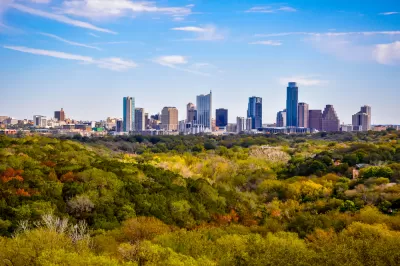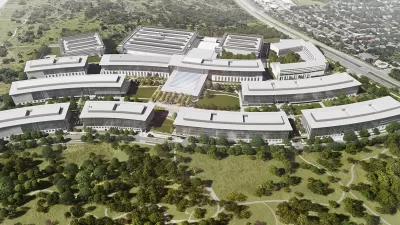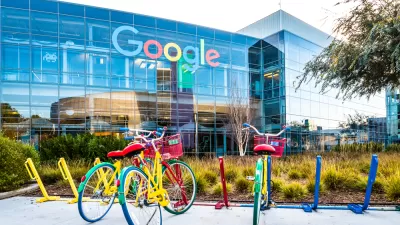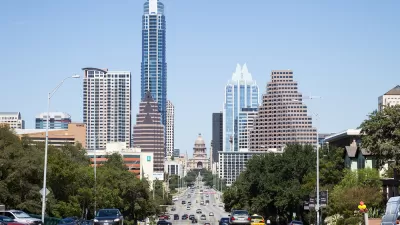Apple has plans to build a new campus and expand its Texas workforce. The decision to expand to an Austin suburb points to both regional and national trends and outcomes.

Sarah Holder takes a closer look at Apple’s plan to expand in Austin, Texas. The company has announced that it will add 5,000 new employees and a 133-acre campus in North Austin, less than a mile from its existing facilities.
The decision reflects a pattern seen with other tech companies expanding operations in places where significant numbers of employees are located. "That means Apple is the latest example of like flocking with like—tech companies choosing to settle in places they’ve already identified as talent centers," says Holder.
Apple’s new facility in Austin is also far from the city center, and part of the trend of the suburban tech campus. These campuses often operate as self-contained worlds with little public transportation access, and this can exacerbate inequality in a region, notes Holder:
The geography of jobs varies by city, [Yonah Freemark] says, but it often follows a predictable path: When campuses and corporations are placed on highways, wealthier people with access to cars also have easier access to employment, whereas other low-income or non-white people are more reliant on transit, and therefore shut out of the game in cities without comprehensive connections.
Holder points out that Apple is getting tax incentives and rebates from the county and state, though not as massive as what Amazon will be receiving for its new headquarters, and it could become the largest private employer in Texas. Its expansion in Austin and tech industry growth in other target areas — such as New York and Washington, D.C. — also reflect the growing gap between winner and loser cities.
FULL STORY: Why Apple Bet on Austin’s Suburbs for Its Next Big Expansion

Planetizen Federal Action Tracker
A weekly monitor of how Trump’s orders and actions are impacting planners and planning in America.

Maui's Vacation Rental Debate Turns Ugly
Verbal attacks, misinformation campaigns and fistfights plague a high-stakes debate to convert thousands of vacation rentals into long-term housing.

Cuomo Is the Candidate of Both NIMBYs and Developers. What Gives?
In the New York City mayoral race, odd bedfellows align to preserve the housing status quo.

The Subversive Car-Free Guide to Trump's Great American Road Trip
Car-free ways to access Chicagoland’s best tourist attractions.

San Antonio and Austin are Fusing Into one Massive Megaregion
The region spanning the two central Texas cities is growing fast, posing challenges for local infrastructure and water supplies.

Charlottesville Temporarily Has No Zoning Code
A judge ordered the Virginia city to throw out its newly revised zoning code, leaving permitting for new development in legal limbo.
Urban Design for Planners 1: Software Tools
This six-course series explores essential urban design concepts using open source software and equips planners with the tools they need to participate fully in the urban design process.
Planning for Universal Design
Learn the tools for implementing Universal Design in planning regulations.
Heyer Gruel & Associates PA
JM Goldson LLC
Custer County Colorado
City of Camden Redevelopment Agency
City of Astoria
Transportation Research & Education Center (TREC) at Portland State University
Jefferson Parish Government
Camden Redevelopment Agency
City of Claremont





























